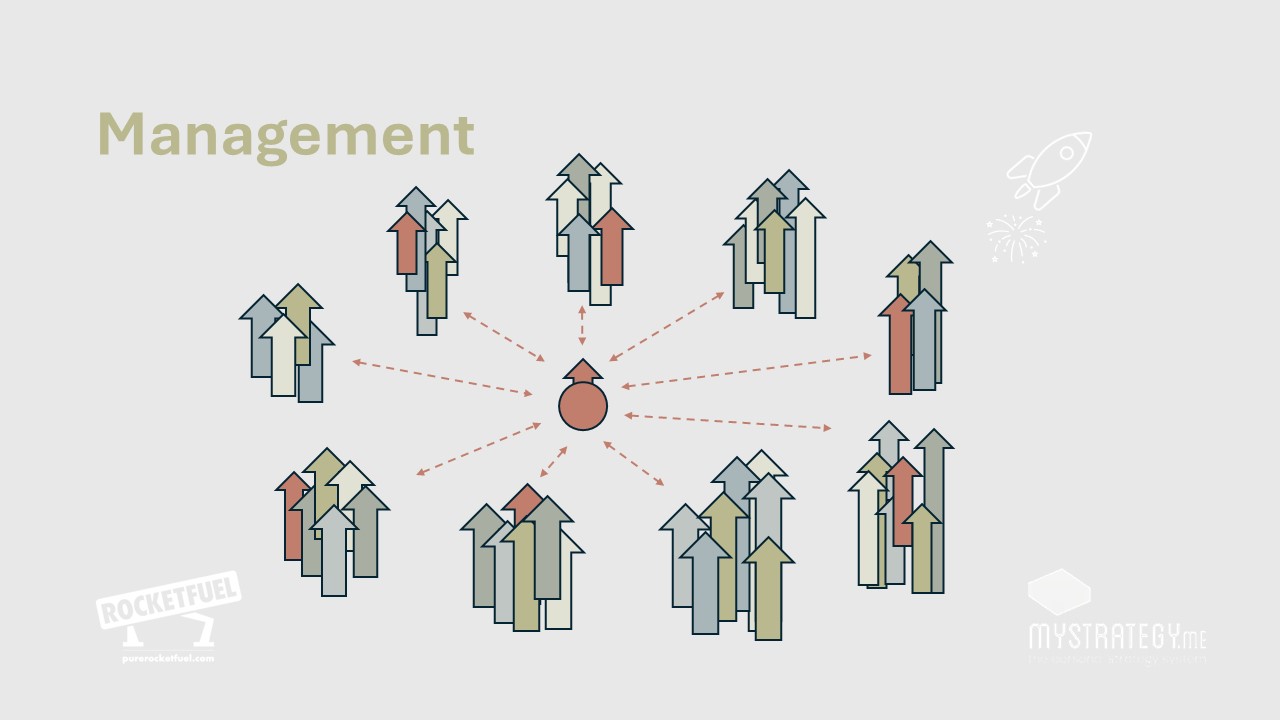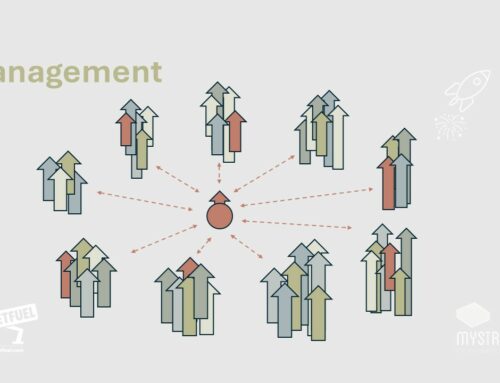
People Management: That thing to which so many employees aspire is rarely straight-forward, says Leadership & Performance Coach, Davina Greene
“People” and “Management”. Putting those words together at times seems something akin to bringing “kittens” and “photoshoot” into the same sentence – much ignored instruction, mad dashing about, corralling, cajoling, restraining, howling and scraping, with seemingly no constructive ending in sight; at other times, when the stars align and things go well, the feeling of teamwork, achievement and general cuddliness is hard to beat.
What Makes People Management So Difficult?
Your imagination, that’s what.
So, before you read any further, do the good old “fact versus assumption” test – how much of your dread of People Management is ‘all in your head’, baseless and fictional, and how much of it is based on true stories? Get that initial bit of perspective, in case there’s anything in that thought process that might make it seem less stressful.
Of course, the second part of that question has to be “If some of what you dread is based on true examples you’ve experienced, or seen, did all of those happen after you took on the job of People Manager?”. I will hazard a guess that all of the potential ‘bad things’ about People Management were known to you before the attractive job title and/or salary was dangled before you. That you were well aware of the swings-and-roundabouts of people and their quirks before you took on the role. That, therefore, you can’t claim that this is any sort of surprise to you: your eyes were wide open coming in. So now you have to deal with it.
Look, management would be a dream if everyone worked with the same healthy drive, if everyone had perspective, if everyone enjoyed the whole concept of ‘work’. In fact, there would probably be no such thing as managers if 2000 staff would just come in and do the necessary every day, without endless instruction and correction, without politics, without frictions.
A CEO once said to me, “There’s nothing worse than someone who’s unenthusiastic and clueless”. I replied, “Yes there is: there’s someone who is enthusiastic and clueless”. At least, if they’re unenthusiastic, they’re probably sitting still with a minimal sphere of influence. With enthusiasm, you’re endlessly carrying a metaphorical fishing rod to try to spot them and reel them back in before the proverbial hits the fan. As a manager, you’ll have the pleasure of cleaning up that ‘proverbial’ which is, of course, a situation best avoided.
Will “Nice” Save Me As A Manager?
Being “nice” does not mean being a good manager. Nice or not, some people should never be let anywhere near a people management role, for the sake of the general sanity of the majority, of their own mental health, or both. There doesn’t have to be ill-intent on either side to create People Management issues, so complex are we as human beings. In the public eye (and, let’s face it, to a heightened extent in the global political sphere), we can often see examples of people who can never accept that they are the common denominator of staffing problems, and therefore never reach a steady managerial state. A leader doesn’t necessarily need to be a manager, but they certainly don’t facilitate their own leadership by rocking every boat they see around them.
Probably the most important task for any manager is that of bringing out the best in a team, in terms of general fit, contentment and resulting productivity. Hired smart people but you’re under-using them? Disaster. Hired focused people but can’t tell them what the bigger aim is? Disaster. “Nice” won’t cut if, if you can’t provide the necessary information and inspiration, or if you’re hiding in a corner, hoping nobody has any questions today.
It is important to remember, however, that People Management spans everything from getting the right person through the door for interview to allowing people to leave under as positive a light as possible – that is, from Job Description to P45. My golden rules for achieving this? Firstly, be able to discuss the role. Next, be able to discuss the goals of the role. Next, agree with the person that their abilities match the role and its goals. Finally, get their confirmation that they are willing to proceed on that basis (the latter two – ability and willingness -being the parts where the “nice” manager usually struggles, giving too much leeway and benefit-of-the-doubt).
Do all of that upfront and you’ve set yourself off on good footing. Repeat it periodically and managerial life becomes much easier – but to repeat it periodically, you always need to be a step ahead, in terms of understanding what the business needs at any given time (and maintaining a good stock of flexible people).
How Can We Get People Management Off To The Best Start?
Alongside the above, whenever we deal with people (in work, or just in life), it is always a good idea to observe the ‘Golden Rule’– in our local parlance, we’d recognize it mainly as “Do unto others”, a concept held dear in varying wordings across most cultures.
As managers, we focus a lot on what people should be doing for us, and relatively little on the foundations we need to create upon which they can be most productive – we forget to respect skills, experience and resulting opinion; we forget that, often, the reasons why a person is not performing are personal and therefore give little time to their stories, or reading between the lines.
Then, it’s good to do a solid amount of reflection on the topic of Management/Leadership Styles. Put all stubbornness, defensiveness and other non-useful behaviors on the backburner and put yourself in the shoes of a variety of people with a variety of personality types. How would each of them really fare, under your management? Where the answer is “Not great”, then how can you begin to adapt your own behaviors in order to fulfil your duties to them as their coach and confidante?
Know your team, know how they want to be handled individually, take time to strategize for dealing with difficult people or conversations, and always have an ear to the ground so that you know when the general mood is shifting towards a bad place.
People Management Admin
Furthermore, be mindful from the get-go of any administrative aspects of People Management required by your organization, or any steps you’d like to put in place for yourself, even if not demanded of you from ‘on high’. If you do have a bad experience with a direct report, ending up in an internal investigation or a full-on legal case, your documentation – your “proof” – is going to be sought.
He says you developed other team members, but not him? You say he stated outright on multiple occasions that he had no interest in further learning, despite your positive approaches? OK, show me your emails/documents that prove that conversation(s) to me. You’re the manager, you should have controlled this situation by writing it down in a format visible to both of you, for your own protection.
She says she was only slightly late once? You say she was significantly late 6 days out of the last 10? Show me your proof. You’re the manager, you should have maintained your documentation/evidence, for your own protection.
Management is administrative, I’m afraid. The more you do verbally – especially in relation to potentially contentious People issues – the more difficult you’re making your own life in the long-run.
Key Considerations for People Management
Never lose sight of the fact that everyone is just a human being doing what they think is right (the many) or what they think they can get away with (the few). A core piece of logic you will often hear in HR-type circles is: “If nobody tells you you’re doing anything wrong, then you can assume you’re doing well”. Your job, as a people manager, is to communicate expectations well, and hold people to them.
- Be resilient. Management is complex, a real skill. Accept that, and don’t interpret every non-perfect day as a ‘bad day’.
- Be humane, following ‘Do unto others’ principles – this is their life, after all. Inspire the same treatment in return.
- Have perspective: people are different, you’ll need to understand problems through their eyes.
- Know your limits. When you’re struggling, be responsible ask someone experienced.
- Communicate: for clarity, always discuss Role, Goal, Ability and Willingness upfront.
Adapt these, and adapt your default Management/Leadership style. Then, make sure your general admin is always up to date.
It’s work, yes, but it needs to be done. That’s the role you’ve taken on. Are you willing and able?
Interested in investing in your own personal – and personal strategy – development? Check out www.MyStrategy.me!
Share This!
About the Author



